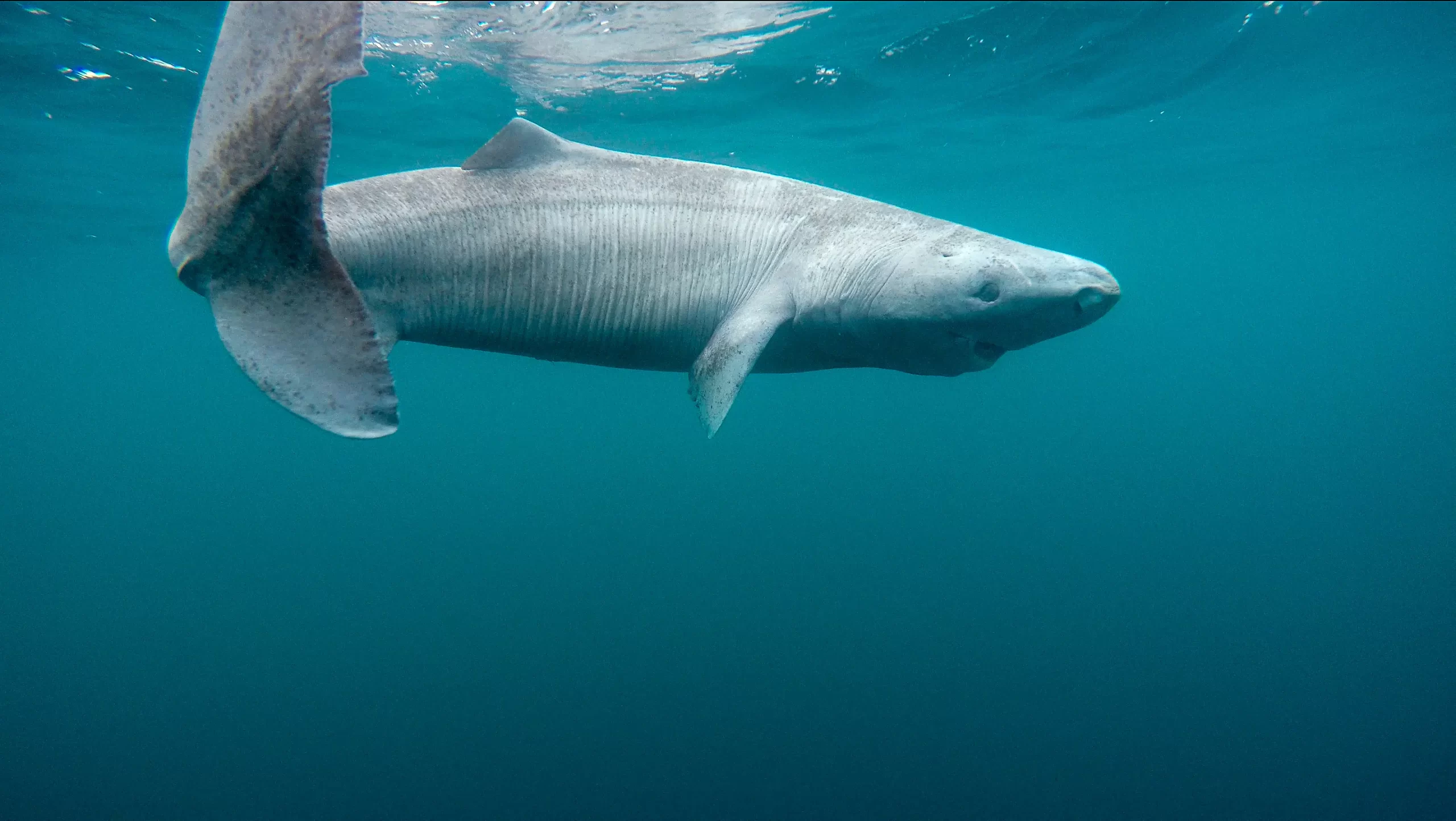The Greenland shark is as of now the longest-living vertebrate known on Earth, according to scientists.

The ages of 28 Greenland sharks were resolved to utilize radiocarbon dating of eye proteins, revealing that one female shark was estimated to be about 400 years old. This makes it the longest-living vertebrate known on Earth, surpassing the record holder, a bowhead whale estimated to be 211 years old.
As Julius Nielsen, a marine biologist from the University of Copenhagen who was the lead author of the review, put it: “We had our expectations that we were dealing with an unusual animal, yet I figure everybody doing this research was exceptionally shocked to learn the sharks were as old as they were.”

Greenland sharks swim through the cold waters of the Arctic and the North Atlantic at such a languid pace that has earned them the nickname “sleeper sharks.”
Greenland sharks are massive creatures, capable of reaching up to 5m long, yet they develop at a sluggish rate of just 1cm each year. They can be found, swimming gradually, in the cold profundities of the North Atlantic.
According to the research team, these animals possibly reach sexual maturity when they reach 4m long, which, based on their estimated age range of as long as 400 years, wouldn’t happen until they are approximately 150 years old.

A recently tagged Greenland shark gets back to the profound and cold waters of the Uummannaq Fjord in western Greenland.
The concentrate partly depended on radiocarbon levels in the eye tissue of the sharks, which was made conceivable overwhelmingly by radiocarbon released into the ocean during atmospheric thermonuclear weapons tests during the 1960s. Sharks with higher radiocarbon levels in their eye still up in the air to be under 50 years old, while those with lower levels were estimated to be at least 50 years or older.
The researchers then drew up an estimated age range for the older sharks based on their size, and on earlier data about Greenland sharks’ size upon entering the world and development rates in fish.

A Greenland shark swimming near the ocean surface after its release from research vessel Sanna in northern Greenland.
According to Nielsen, the analysis has a probability rate of around 95% and the not set in stone to be at least 272 years old, however could be as much as 512 years old (!), with the most probable age being 390 years.
In any case, for what reason do Greenland sharks live so long?
The long lifespan of these animals is attributed to their very inability to burn calories and the cold waters they inhabit. They travel through the Arctic and North Atlantic waters at an exceptionally sluggish pace, earning them the nickname “sleeper sharks.” Despite having been found with seal parts in their stomachs, the sharks are languid to the point that specialists accept they probably polished off the seals when they were either asleep or already dead.
The more slow you go, the farther you will get.

